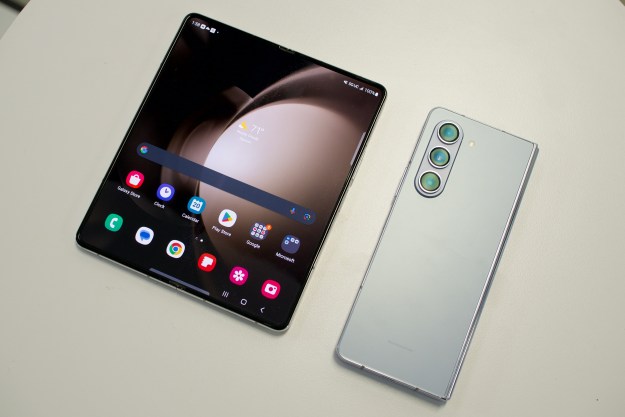 According to the latest research from Canalys, smartphone apps are continuing to fly off the virtual shelves at an astonishing rate, with over 13.4 billion downloads across 50 countries during the first quarter of 2013, marking an 11 percent increase over the previous quarter.
According to the latest research from Canalys, smartphone apps are continuing to fly off the virtual shelves at an astonishing rate, with over 13.4 billion downloads across 50 countries during the first quarter of 2013, marking an 11 percent increase over the previous quarter.
The research covered four major app stores: Apple’s App Store, Google Play, the Windows Phone Store and BlackBerry World.
Revenue from paid-for apps, in-app purchases and subscriptions improved on the previous quarter by 9 percent, reaching $2.2 billion, Canalys reported.
The research firm found that worldwide, Google Play accounted for the greatest number of app downloads at 51 percent, while in terms of revenue Apple scored best with 74 percent of the market share.
Commenting on the findings, Canalys senior analyst Tim Shepherd said, “Apple’s App Store and Google Play remain the heavyweights in the app store world. In comparison, BlackBerry World and the Windows Phone Store remain distant challengers today, though they still should not be ignored.”
While the App Store and Google Play have nearly a million apps in their respective stores, BlackBerry World and Microsoft’s Windows Phone Store each have closer to 100,000.
For BlackBerry and Microsoft to succeed in the app market, Shepherd said it was important for both companies to “proactively work to attract fresh, innovative content and services to their respective catalogs, and fill gaps in their inventories.” He added that an increase in device sales was also essential, noting that BlackBerry’s new platform and handsets will give it a “much greater chance” to compete for attention in the smartphone market.
Shepherd praised Microsoft for its work in attracting big-name titles to its Windows Phone platform, though he warned that to build on its success the Redmond-based company “needs to do a better job of marketing and communicating the already established strength of its app story.”
For many observers, it’s the battle at the bottom end of the market which is the most interesting. With BlackBerry and Windows Phone both intent on becoming the third ecosystem, getting app developers on board is an essential part of each company’s strategy. There is certainly much at stake in the coming months.
[Image: iQoncept / Shutterstock]
Editors' Recommendations
- Google Play Store helps find the apps invading your privacy
- Gmail app hits 10 billion Play Store downloads, holds 53% of U.S. email market
- Google removes 600 apps with annoying pop-up ads from the Play Store

